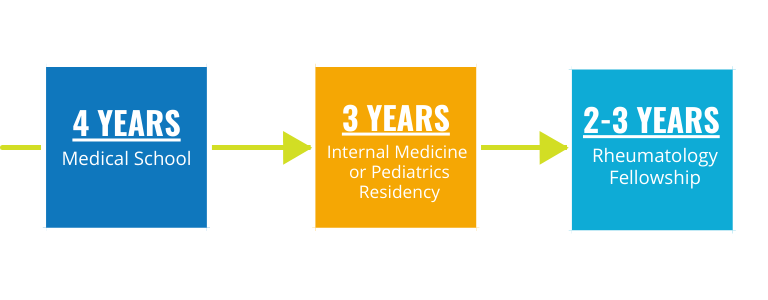HOW DO I START MY CAREER IN RHEUMATOLOGY?
Mapping out your career can be very daunting and nerve-racking period of your life. It’s a lot to think about. Don’t stress! To make things easier, we mapped out the many career opportunities in rheumatology to give you a better idea what a life in rheumatology looks like.
Want to learn more about the field? Become an ACR student or resident member. ACR Membership is available to students enrolled in a graduate-level program in medicine or a related field and students enrolled in a residency program who are interested in rheumatology as a specialty or field of research.
WHAT TYPE OF TRAINING IS REQUIRED?
Rheumatologists receive years of education and training beyond college. After they earn a medical degree (four years of medical school), they complete a residency program in internal medicine or pediatrics. They have another two to three years in specialized rheumatology training.
After completing their rheumatology fellowship training, they must pass a rigorous national exam. For adult rheumatologists, the subspecialty exam is conducted by the American Board of Internal Medicine. For pediatric rheumatologists, the American Board of Pediatrics conducts the exam.
